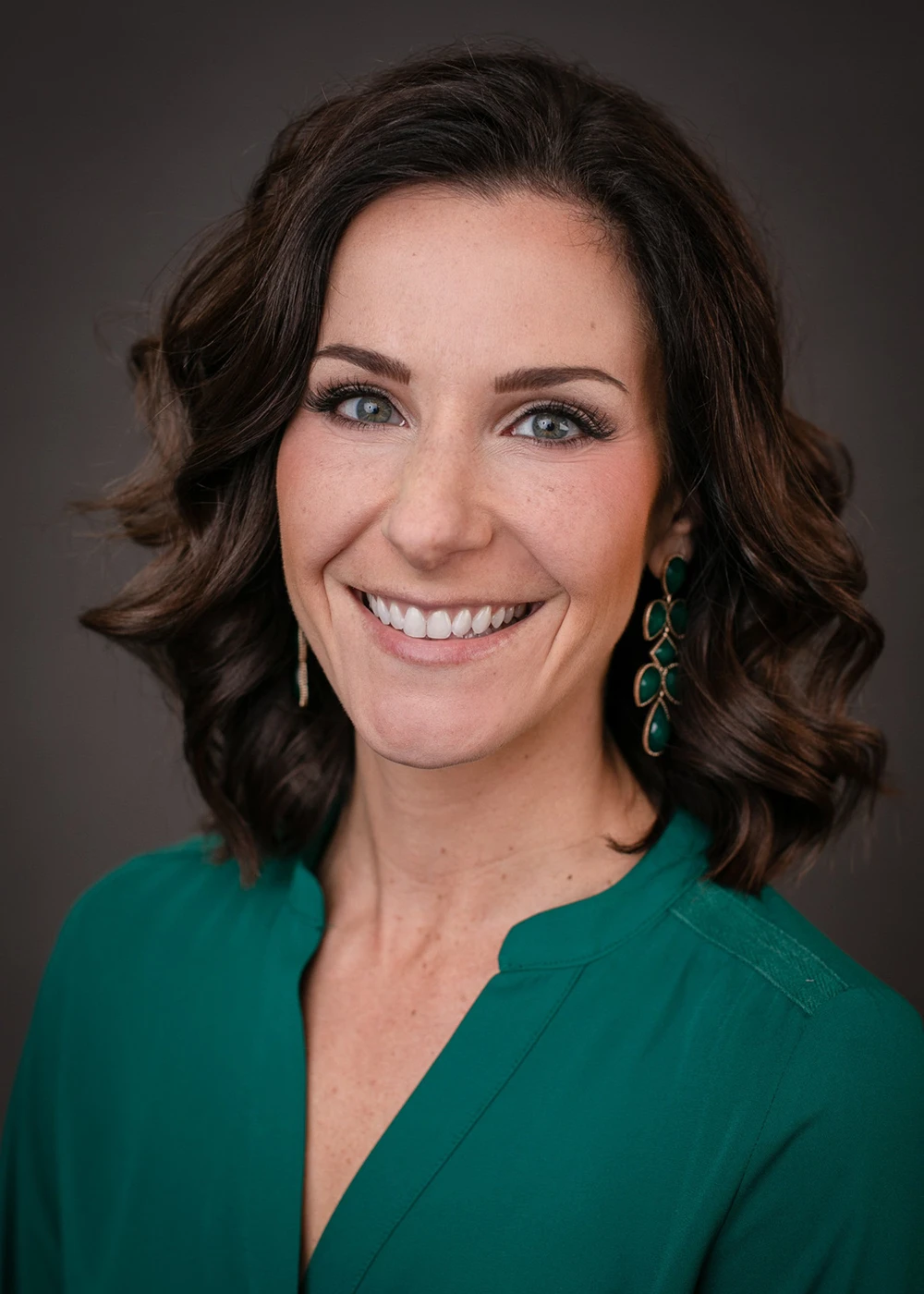The Meaning of Care Magazine
The Primary Care Visit That Saved His Life
Published: March 11, 2019
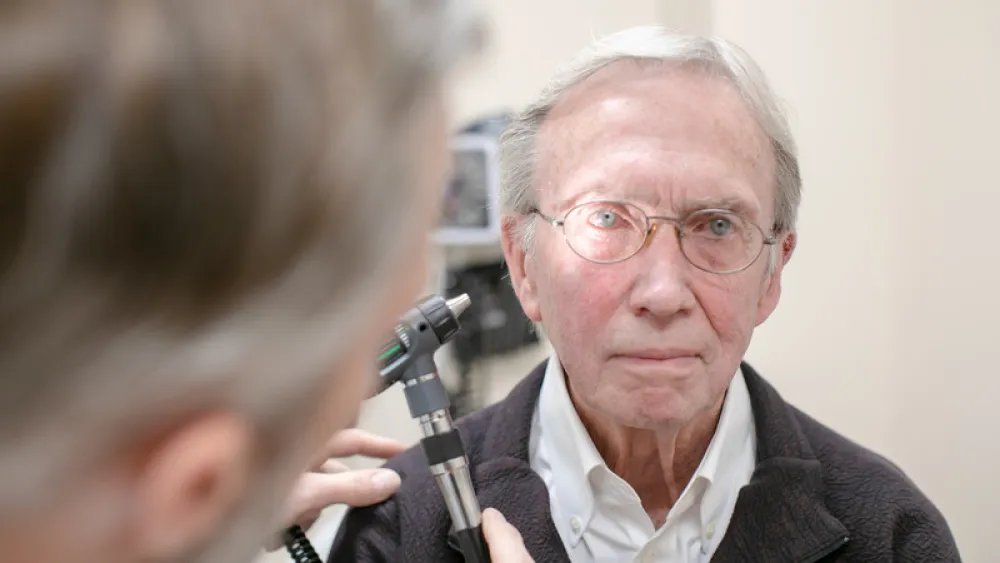
But during a routine visit with his primary care physician, there was something very different about them.
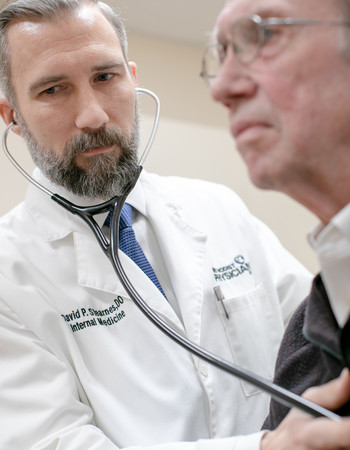
Not Just a Stomach Bug
It was December 2016. John wasn’t feeling well.
“I was just really tired,” he explained.
He assumed whatever it was would pass in a couple days. His wife, Sharon, gets credit for what happened next.
“She made me call my doctor,” he said. “She wanted me to get checked out. We were getting ready to go see our son in Miami, and she didn’t want me to pass anything on to our grandkids.”
Dr. David Stearnes, an internal medicine physician at Methodist Physicians Clinic HealthWest, had been taking care of John for nearly a decade. He diagnosed him with gastroenteritis – a stomach bug.
“I got up off the table,” John said. “I just about walked out the door when Dr. Stearnes said to me, ‘John, why don’t you come back here a minute.’”
Dr. Stearnes picked up the story from there: “I said, ‘All of your symptoms seem pretty straightforward, but there’s some yellowing of your eyes.’ I decided to run some lab work just to make sure there was nothing else going on.”
Lab results showed an elevation of bilirubin in John’s blood.
“There aren’t too many things that cause that,” Dr. Stearnes said. “In someone his age, the first thing you worry about is something causing a bile duct or liver obstruction.”
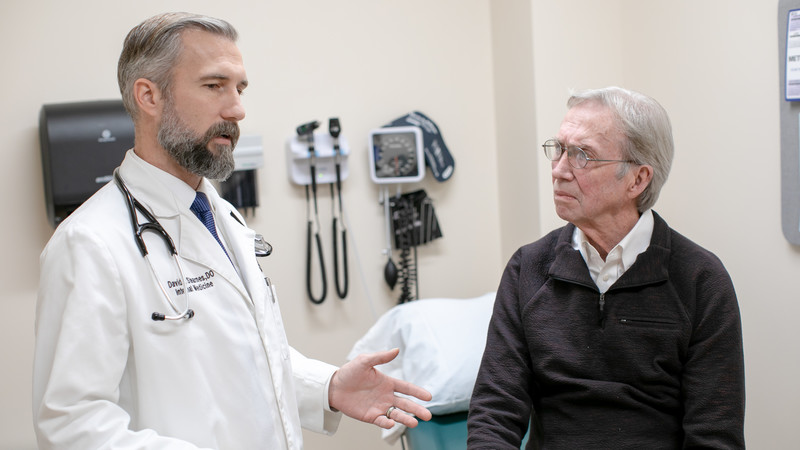
John was asked to go to Methodist Hospital the next day. That’s when an ultrasound revealed a tumor at the head of John’s pancreas. After a CT scan and even a biopsy, there was still no certainty that it was cancer, but doctors determined it likely.
A Complex Cancer-Confirming Surgery
Dr. George Dittrick, a surgical oncologist with Methodist, met with John and Sharon to talk about the Whipple procedure – a complex three- to five-hour surgery for which 20 percent of pancreatic cancer patients qualify. John was in good health, and he was deemed a good candidate for the surgery. But that didn’t ease Sharon’s anxiety.
John, whose daughter was killed in a tragic car accident years ago, remembers word for word what his wife said to Dr. Dittrick as tears welled up in her eyes: “You mean to tell me that I’ve lost my daughter, and now I’m about to lose my husband?”
Dr. Dittrick explained to both of them that if the tumor was able to be removed, instead of weeks or months to live, there was potential that John could have years.
“We felt we had a good chance for a cure,” Dr. Dittrick said.
“We knew we had to do it,” John added.
He had the surgery in January 2017, and that’s when it was confirmed: John’s tumor was indeed cancer.
Establishing a Relationship
Dr. Timothy Huyck, an oncologist with Nebraska Cancer Specialists and another member of John’s care team at Methodist, had the honor of eventually telling John he was cancer-free.
It’s something John won’t soon forget: “He said, ‘God bless you, John. We’ve got a long way to go, but this is a great start.’”

Recovery has been long and hard, “but I’m alive,” John said.
“I tell everybody now – friends and associates who say they don’t feel well – I tell them, ‘Get in! See your doctor. Don’t have one? See mine!’”
Dr. Stearnes urges everyone to establish a relationship with a primary care provider before getting sick. He fears a person may skip a potentially life-saving visit if he or she doesn’t have a provider lined up ahead of time.
“The fact that John had someone he could call and see right away made all the difference,” Dr. Stearnes explained. “I’m convinced he did have a viral infection, and he would have gotten better on his own. But it may have been months before he started seeing symptoms related to his cancer, and at that point, it may have been too late for a good outcome.”
“I see it in so many cancer cases,” Dr. Dittrick said. “That initial diagnosis frequently comes from a primary care provider.”
More on the Importance of Primary Care
According to Dr. Stearnes, there are a variety of reasons individuals may hesitate to make that initial appointment. Those reasons often include the fact that:
- They’re well, and they don’t feel they have a need for a doctor.
- They have some bad habits, and they don’t want to feel embarrassed, be scolded or told they need to change.
- They’re busy, and they struggle to find time to squeeze in another commitment.
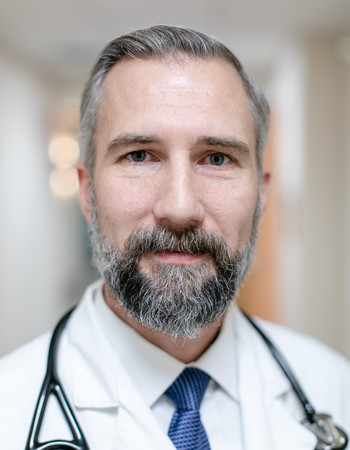
“I get it,” Dr. Stearnes said. “Being busy is often an excuse even for myself. But it’s worthwhile – having some level of comfort and rapport with a primary care provider in the event that something does come up.”
And while he understands that not everyone’s experience with primary care will result in the revelation of cancer, he believes it’s about so much more than that.
“We keep you up to date on vaccines, and we keep tabs on your cardiovascular health,” he continued. “The risk of American men suffering a heart attack or stroke – if they live long enough – is a flip of a coin. And we can reduce that risk substantially if given the opportunity to intervene at the right time. The right time is early. The right time is 20 to 30 years prior to the event that could occur.”
That’s exactly why Dr. Stearnes feels he can’t stress it enough: Preventative health maintenance is so important.
John feels blessed to have the relationship he does with Dr. Stearnes. He feels blessed his wife made him call when she did. More than anything though, he feels blessed to be a part of the Methodist family.
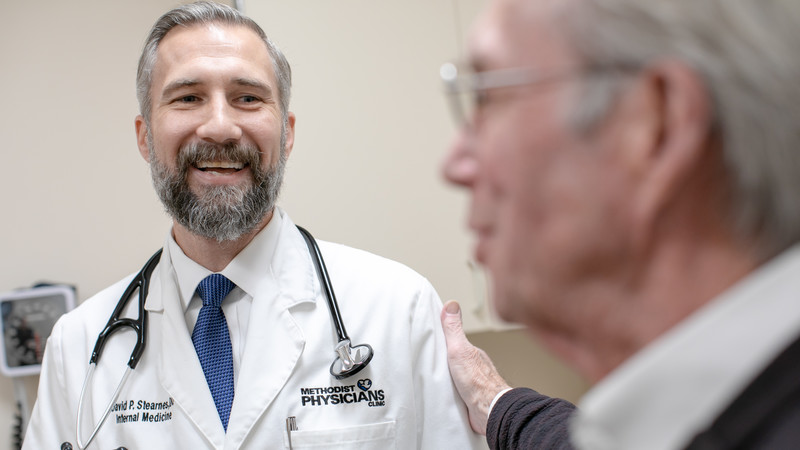
“The promptness. The no messing around. The organization from start to finish. They didn’t just treat me like a priority, they treated me like I was someone very special. And that was key. I’ve got my team right here,” he said while standing in the HealthWest lobby. “Mark my words: I will never go anywhere else.”
More Resources
- Read more from the Spring 2019 issue of The Meaning of Care Magazine
- Find a primary care provider
- Learn more about cancer services at Methodist

